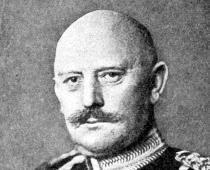We draw your attention to the most “dangerous” tasks in the Unified State Exam in Russian.
A9– finding grammatical basis. Practice in tests to emphasize the basis, analyze the proposed fragment of a sentence according to the members of the sentence, and then you will not mistake the complement for the subject, and refuse the answer option where there is a circumstance.
Carefully repeat the topic “Impersonal Sentence”: and it will be easier for you to find the predicate in it.
A small change awaits you when completing the task A1. If earlier test developers gave 3 incorrect examples and 1 correct one, then this year it will be the other way around.
I think the task will no longer be a surprise for many of you A2, concerning paronyms, lexical units such as “business trip” and “business trip”. But daily flipping through the Dictionary of Paronyms and analyzing these interesting language pairs will be useful and will bring points to your exam bank. It would be good to try to memorize as many paronyms as possible when solving tests.
Based on the experience of past years, I am sure that points will again be lost when solving the task IN 1, when the tasks contain participles and gerunds such as “read” and “having read” and the examinee is required to find a word formed in a prefix-suffix way. It’s calculated simply: you’re worried, tired, but here’s such a simple task. I found the prefix and the suffix too! And minus a point from your piggy bank! You fell into a “trap” because you forgot: participles and gerunds are not formed in this way. Their method of word formation is suffixal! And the correct answer there will be some adverb (on the right, red-hot) or a noun (window sill, Moscow region).
When completing a task AT 3 you can also fall into a “trap”, since the developers of the Unified State Exam inserted examples into the tests for training that are studied casually in the school curriculum. You all know that a phrase formed on the basis subordinating connection when the dependent word is attached only by meaning, it is called adjunction. The role of dependent words in such a phrase is an adverb, a gerund and an infinitive. And the tests give examples like “their children”, “deeper place”, “Bordeaux raincoat”. In school practice, such phrases are considered as agreement. And this is an adjunct, since indeclinable adjectives, possessive pronouns her, his, theirs and the form are simple comparative degree adjectives are unchangeable, which means they are adjacent to the main word only in meaning. For example, “bob hairstyle,” “khaki dress,” “her book.” The last example is especially controversial. But how easy it is to prove that we simply do not use the words “her” book or “her” jacket in speech.
Each of you, of course, is determined to fulfill task C, and you already know that it is necessary to characterize the problem you have taken from the perspective of the source text. Using action verbs, you need to write what the author is talking about, what feelings he is experiencing at that moment, what worries and worries him or, conversely, pleases and delights him. If you write this part correctly, then you already have two points out of twenty-three.
The organizers of the Unified State Exam introduced another innovation in the writing section of task C. When you write that you agree with the author or, conversely, that you do not share his point of view, it is necessary to reason. Two or three sentences are enough. The main thing is that you write to the essence of the issue, and then you can give arguments. In the next article we will show you how to find arguments to support your opinion if you don’t have any...
Statements school teachers the fact that “you are not USE” must be divided by at least ten. They are simply trying in this way to motivate their students to intensively prepare for the exam.
In fact, even those who are sure that they know nothing take the Unified State Examination in the Russian language. The percentage of graduates who have not passed the minimum threshold is on average in Russia about 1 – 1.5%. At the same time, the number of “B” students is distributed unevenly - most of them are in those regions for whose residents Russian is a “second” language. For example, in the North Caucasus in 2015, 17% of graduates were unable to cross the threshold (in Russia - 1.5%), in 2016 - 7% (national average - 1%).
Thus, almost all schoolchildren for whom Russian is their native language successfully overcome the minimum bar. This happens because the exam primarily tests not knowledge of theory, the ability to determine types of sentences or make parses, etc., but practical knowledge of the language. That is, basic literacy, the ability to understand and analyze what you read, express your thoughts in writing, and so on.
If we compare Unified State Exam assignments in Russian with GIA tasks that schoolchildren write afterwards - you can immediately see that the GIA is more focused on theory, and the Unified State Exam is more focused on practice. That is why even those who did not prepare specifically and therefore think that they know nothing about this subject end up passing the Unified State Examination in the Russian language. But 11 years of school and constant use of language as a means of communication is also knowledge and skill.
Threshold (minimum) and average Unified State Exam scores in the Russian language
The threshold scores for the Unified State Exam in Russian are not very high. The conversion of primary scores to a 100-point scale may vary slightly (it is determined only after passing the exams). But usually in order to to receive a school leaving certificate, a student needs to obtain only 10 primary points (24 test points). At the same time, the maximum possible number of primary points is 57. And the 10 “minimum” points can be easily gained on the simplest tasks with short answers. For example, according to analysts, the vast majority of graduates cope with tasks on understanding the basic word, spelling prefixes, choosing the correct lexical meaning of a word, and many others.
For admission to university The threshold score for the Unified State Exam in Russian is higher and is 16 primary points (36 test). This is 28% of the possible maximum - and gaining them is also not difficult. According to statistics, only about 2.5% of Russian graduates cannot overcome the “university” bar.
Average Unified State Examination points in the Russian language fluctuate slightly from year to year. For example, in 2015 GPA on a 100-point scale it was 65.9, in 2016 it was 68. This is 39-42 primary points.
That is, those taking the Unified State Exam have a “right to make mistakes”: you can “lose” about a quarter of points during the exam, but at the same time get a very “strong” result, which gives you a chance of successfully entering the budget. However, scores above sixty are usually obtained by schoolchildren with a high level of literacy who still took the time to “target” preparation for the exam.

How to quickly prepare for the Unified State Exam in Russian
In schools, high school students often begin to be “densely” prepared for final exams already from the 10th grade, convincing that it is impossible to prepare for the Unified State Exam “in just a year.” But if there are only a few days left before the exam, and you have just now decided to get busy preparing, even in a very short time you can manage to “pull up” the subject.
The easiest way to do this is to use online simulators designed for self-study for exams, for example:
- Yandex. Unified State Examination,
- I will solve the Unified State Exam,
- Dunno PRO.
Structurally, the Unified State Examination in the Russian language is divided into three parts:
- block of tasks with short answers;
- questions with short answers based on the text read;
- composition.
When preparing for the exam quickly, it makes sense to focus on the first two parts. Writing practice essays the day before the exam or reading sample papers with reviews only makes sense if you know the subject perfectly and are “going for the best.” Therefore, just check how well you remember the structure of the essay and the requirements for it - and move on to working on the test part.
- Take 3-4 test options. This will allow you to refresh your memory of the structure exam paper in the Russian language and determine your level of knowledge. Try to answer questions quickly, without looking at textbooks and information resources on the Internet. If a question stumps you, just skip it or answer at random.
- Analyze your results. See how many points you manage to get on the test, which questions you usually answer correctly, and where you “float” or don’t know anything at all.
- Highlight topics that you have some idea about, but are not strong enough - these are exactly the questions that make sense to work on in order to secure extra points in the exam.
- Work through these questions “targeted” - refresh your memory of the theory and fix it on the simulator, choosing a non-complete option Unified State Exam test, and the corresponding thematic block. If you only have a few hours to prepare, give preference to topics with a small amount of theory. For example, remembering the rules or the fact that the address is separated by commas is much easier than learning all the words from the spelling minimum or understanding in detail the intricacies of spelling “n” and “nn”.
- Take the entire test a couple more times and compare your results. Most likely, as a result of such a blitz training, your average score for the short answer part will increase significantly.

How to pass Russian with the maximum score
In order to pass the exam to the limit of your capabilities, several conditions must be met:
- Be sure to get some sleep before the exam, at least a little, and if you can’t fall asleep, at least just lie in silence, with your eyes closed, trying to relax as much as possible;
- try to curb excitement - graduates often “lose points” not from ignorance of the material, but simply from being nervous;
- Use the time allotted for the exam wisely.
The duration of the Unified State Exam in Russian is 3.5 hours. Reserve half an hour to check the finished task, distribute the rest of the time between three blocks of tasks. For example, spend 45 minutes on each of two blocks of short answer questions, leaving an hour and a half for the essay.
Within the allotted time, work through each part of the test according to the following scheme:
- use CMMs as a draft,
- if, after reading the question, you understand that you know this material, immediately find the correct answer, write it down and mark the task with a plus;
- if you need to seriously think about a question, don’t “hover” over it right now, mark it with a question mark and immediately move on to the next one;
- if you have no idea how to do this task, mark it with a minus and proceed to the next one;
- after you have reached the end of the block, return to the tasks marked with a question mark and work on them, moving from the easiest topics for you to the more complex ones;
- if there is time left, try to “take” the questions you marked with a minus;
- five to seven minutes before the end of the period that you have allotted to yourself, begin to transfer the answers to the form;
- when filling out the form, write letters and numbers clearly according to the model, check the correctness of your own answers;
- do not leave empty lines - if you still have tasks marked with a “minus” - enter the answer at random, there is always a chance to “get in”;
- after the answer form is completed, proceed to the next block of questions;
- If you have time left at the end of the exam, you can think again about the “doubtful” answers, choose other options and write them down in the field of the form intended for corrections.

“Halve” the time allotted for working on an essay, devoting half the time to writing a draft, and half to rewriting it on a form. The basic requirements for work are contained in the text of the CMM; check it if necessary. It is critically important to meet three conditions when working on an essay:
- correctly identify the problem raised by the author,
- write a text of sufficient length (at least 150 words),
- have time to completely rewrite the essay on a form, because drafts are not checked.
When writing, try to adhere to the essay plan: first the formulation of the problem, then a commentary on it, the point of view of the author of the text, your own position, argumentation and conclusion. Do not forget that when selecting arguments from literature, it is not necessary to limit yourself to the school curriculum; you can use material from other works. Avoid long and complex sentences– it’s easy to make a punctuation mistake in them.
If, when rewriting your essay or checking it, you notice any shortcomings or decide to change the wording, you can cross out a few words directly on the form; points will not be deducted for “blots”. However, it is better to write clearly and legibly.
After the work is completed, carefully re-read the essay from beginning to end and correct any errors found. If there is still time left before the end of the exam, go back to the short answer section and work on the questions that you did not have time to answer in the first half of the exam. Now you can think about them without the risk of not having time to complete the work.
Worry before the Unified State Exam, just like before any other exam important event, - quite normal. But sometimes anxiety develops into panic, which interferes with preparation for the final certification and the exam itself. How to get rid of fear and really get objective assessment your knowledge?
For children from the provinces, the unified state exam is the only opportunity to get into a top university and settle in big city. But in order to get in, you need to do well, and studying often fades into the background and gives way to being stuck on “memes” from VC. Maybe we can try to combine business with pleasure?

The Unified State Exam is a serious test, perhaps, for all graduates. And not only what the certificate will be like depends on its results, but also whether the young man will be able to enter the desired educational institution for the desired specialty, will he be accepted on a “budget” basis or will he have to study on a contractual basis.
Therefore, for schoolchildren, the last year or two of school before graduation (and for the most responsible ones, even more) are devoted to preparing for the final certification work for the entire educational course.
You can often hear the abbreviation FIPI from schoolchildren, applicants, teachers and parents. Those who have already encountered it say: this is perhaps one of best helpers in preparation for the Unified State Exam.

What is FIPI, and why is it so important to train your skills before exams on this organization’s task bank? We answer three simple questions on the topic.
The period before exams is a time of endless memorization of theory and practice solutions practical problems. It’s good if a person spent enough time preparing in previous classes. Then before the Unified State Exam during the final school year you can repeat and consolidate information, and also write rehearsal work based on demo versions from the Internet.
If objectively there was no time for preparation before? This happens with young athletes who spend a lot of time in training, competitions and training camps. Or a young man has only grown up sharply in his senior year and decided to come to his senses, and now he has to learn almost the entire school curriculum in a short time.

Be that as it may, there are situations when there is very little time left to prepare for the Unified State Exam, but you need to master a large amount of information. What to do in this case, what methods and techniques will help with memorization?
Advice for family – turn off your emotions. It is difficult to remain calm under such stress, but this is the only sensible approach. Graduates do poorly on the Unified State Exam for many reasons. This is the excitement long-term stress, lack of knowledge. The main thing to remember is that the assessment can be corrected.

We list in what cases you can retake the state exam.
Cheat sheets in school life– an irreplaceable and almost obligatory thing. Hundreds of thousands of disciples were “saved” on their own, tests, testing thanks to them. This is the result of the special creativity of children of different ages on every continent. This method is not so popular except among excellent students who know the material inside and out.

Ending schooling ends with the most important stage - the state final certification. Each graduate must successfully pass mandatory Unified State Examination, and most schoolchildren increase the number of exams, supplementing them with elective disciplines. So how can you organize your preparation effectively so that in just over a year you can improve your knowledge and successfully pass the final tests?

Current graduates for completion certificate high school must pass the state final certification in Unified State Examination form, introduced almost two decades ago. Everyone is interested in successfully passing the exam - the students themselves, their parents and teachers. However, this exam still causes mixed reactions, and questions and tasks usually cover the entire spectrum school curriculum. That is why you should prepare for this exam conscientiously, and preferably start in advance.

Most schoolchildren have a rather superficial idea of the exam they are about to take. It is rare to meet graduates or their parents who have full knowledge of the procedure for passing the Unified State Exam, despite the fact that currently a large amount of information can be found on the Internet.
You need to treat the Unified State Exam as an upcoming job. To do this, you should learn as much as possible about this exam and prepare thoroughly for it.
How to prepare for the exam?
You should start preparing as early as possible. Intensive classes are required approximately a year before the test. It’s not difficult to prepare for the Unified State Examination in the Russian language; all you need to do is:
- Make a lesson schedule. It is recommended to spend at least an hour every day to prepare;
- Study the structure of CMMs that will be presented in the exam;
- Purchase several collections with theoretical material, as well as practical tasks. Having repeated the theory on a certain section of the language, it is recommended to complete a number of tasks on the corresponding section;
- Mark the most difficult tasks for yourself and repeat the corresponding theoretical material, and then return to them again;
- Select examples from literary works to defend your position when writing an essay. It is best to choose examples that cover several issues that the authors may address;
- If possible, involve a teacher in the process, attend OGE/USE courses. This will allow you to receive the most complete consultation on issues that cause difficulties (as a rule, writing an essay causes the greatest difficulties);
- Study: rules of conduct for the OGE/USE, rules for filling out forms, “threshold” score. This will avoid unnecessary errors not directly related to the CMM task;
- Visit various Internet resources on the preparation and conduct of the OGE/USE, including forums where you can discuss the OGE/USE procedure;
- If possible, write “trial” OGE/USE. Such “tests” allow the student to assess the level of his knowledge during preparation.
Note: attending various OGE/USE courses helps:
- “sort out” existing knowledge;
- consolidate existing theoretical and practical material;
- prepare for tasks of increased complexity, which are not always given without special preparation.
What else is required to prepare for the OGE/USE in the Russian language?
In addition to developing the ability to cope with tasks from various sections of the language, it is also recommended to work in the following areas:
- develop motivation to successfully pass the exam (as they say, thoughts matter);
- develop a positive attitude towards the exam. A good mood will make you feel more comfortable and focus on the task;
- train a sense of self-control (you cannot force a person to do what he does not want, so you need to learn to control yourself);
This will help examinees better cope both with preparing for the Unified State Exam in Russian and with passing it.
Click " Like» and get the best posts on Facebook!
- In contact with 0
- Google+ 0
- OK 0
- Facebook 0








